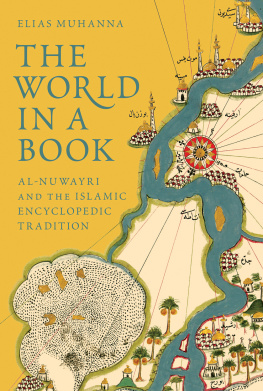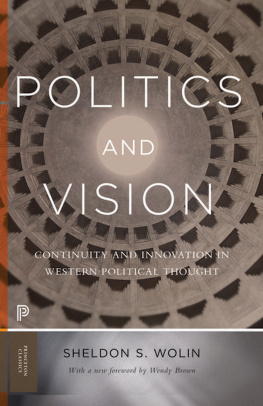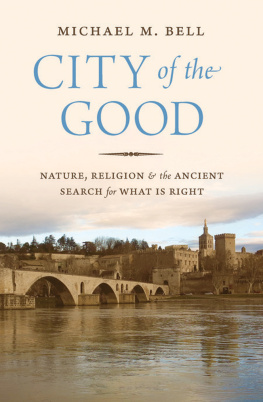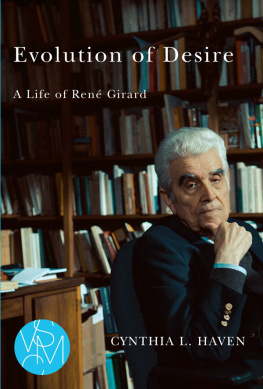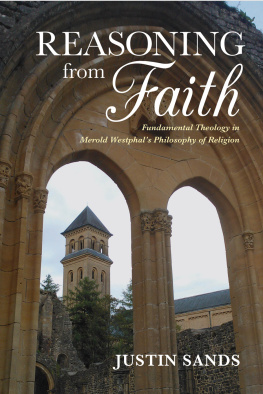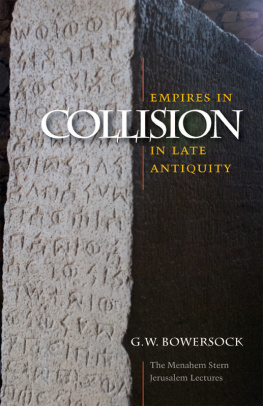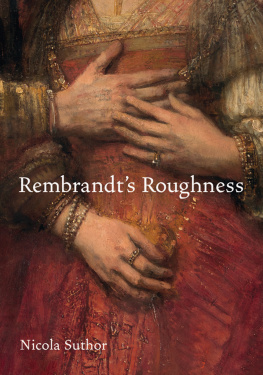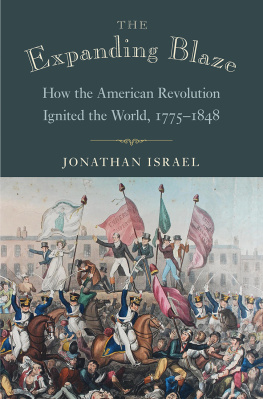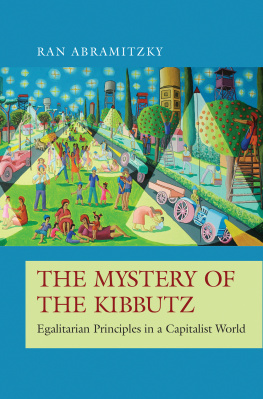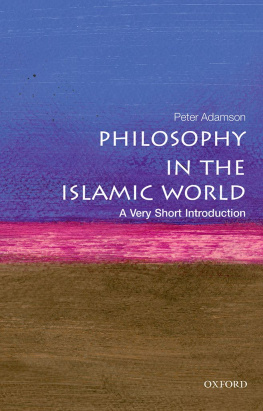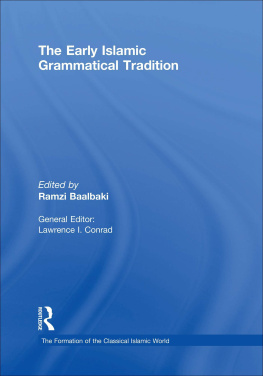Project Muse. - The World in a Book: Al-Nuwayri and the Islamic Encyclopedic Tradition
Here you can read online Project Muse. - The World in a Book: Al-Nuwayri and the Islamic Encyclopedic Tradition full text of the book (entire story) in english for free. Download pdf and epub, get meaning, cover and reviews about this ebook. City: Princeton, year: 2018, publisher: Princeton University Press, genre: Science. Description of the work, (preface) as well as reviews are available. Best literature library LitArk.com created for fans of good reading and offers a wide selection of genres:
Romance novel
Science fiction
Adventure
Detective
Science
History
Home and family
Prose
Art
Politics
Computer
Non-fiction
Religion
Business
Children
Humor
Choose a favorite category and find really read worthwhile books. Enjoy immersion in the world of imagination, feel the emotions of the characters or learn something new for yourself, make an fascinating discovery.
- Book:The World in a Book: Al-Nuwayri and the Islamic Encyclopedic Tradition
- Author:
- Publisher:Princeton University Press
- Genre:
- Year:2018
- City:Princeton
- Rating:4 / 5
- Favourites:Add to favourites
- Your mark:
- 80
- 1
- 2
- 3
- 4
- 5
The World in a Book: Al-Nuwayri and the Islamic Encyclopedic Tradition: summary, description and annotation
We offer to read an annotation, description, summary or preface (depends on what the author of the book "The World in a Book: Al-Nuwayri and the Islamic Encyclopedic Tradition" wrote himself). If you haven't found the necessary information about the book — write in the comments, we will try to find it.
The World in a Book: Al-Nuwayri and the Islamic Encyclopedic Tradition — read online for free the complete book (whole text) full work
Below is the text of the book, divided by pages. System saving the place of the last page read, allows you to conveniently read the book "The World in a Book: Al-Nuwayri and the Islamic Encyclopedic Tradition" online for free, without having to search again every time where you left off. Put a bookmark, and you can go to the page where you finished reading at any time.
Font size:
Interval:
Bookmark:

THE WORLD IN A BOOK
THE
WORLD
IN A
BOOK
AL-NUWAYRI AND
THE ISLAMIC
ENCYCLOPEDIC
TRADITION
ELIAS MUHANNA
PRINCETON UNIVERSITY PRESS
PRINCETON AND OXFORD
Copyright 2018 by Princeton University Press
Requests for permission to reproduce material from this work should be sent to Permissions, Princeton University Press
Published by Princeton University Press,
41 William Street, Princeton, New Jersey 08540
In the United Kingdom: Princeton University Press,
6 Oxford Street, Woodstock, Oxfordshire OX20 1TR
Portions of previously appeared in modified form in Encyclopaedias, Arabic by Elias Muhanna, in Encyclopaedia of Islam Three. Edited by Marc Garborieau et al. Leiden: Brill, 2015.
Portions of previously appeared in modified form in Why Was the 14th Century a Century of Arabic Encyclopaedism? by Elias Muhanna, in Encyclopaedism from Antiquity to the Renaissance. Edited by Jason Knig and Greg Woolf, 34356. Cambridge: Cambridge University Press, 2013. Cambridge University Press 2013, reprinted with permission.
will appear in modified form in The Art of Copying: Mamluk Manuscript Culture in Theory and Practice by Elias Muhanna, in In the Authors Hand: Holograph and Authorial Manuscripts in the Islamic Handwritten Tradition. Edited by Frdric Bauden and lise Franssen. Leiden: Brill, forthcoming.
Throughout, excerpts appear from The Ultimate Ambition in the Arts of Erudition: A Compendium of Knowledge from the Classical Islamic World by Shihab al-Din al-Nuwayri, edited and translated by Elias Muhanna. New York: Penguin Books, 2016. Translation copyright 2016 by Elias Muhanna. Used by permission of Penguin Classics, an imprint of Penguin Publishing Group, a division of Penguin Random House LLC. All rights reserved.
press.princeton.edu
Jacket image: Map of the Nile River estuary, by Piri Reis (Turkish, 14651555). H: 13 3/8 in., W: 9 7/16 in. (34 24 cm.) The Walters Art Museum, Baltimore, MD.
All Rights Reserved
Library of Congress Cataloging-in-Publication Data
Names: Muhanna, Elias author.
Title: The world in a book : Al-Nuwayri and the Islamic encyclopedic tradition / Elias Muhanna.
Description: Princeton : Princeton University Press, 2017. | Based on the authors dissertation (doctoral)Harvard University, 2012. | Includes bibliographical references and index.
Identifiers: LCCN 2017011145 | ISBN 9780691175560 (hardcover : alk. paper)
Subjects: LCSH: Nuwayr, Amad ibn Abd al-Wahhb, 1279-1333. Nihyat al-arab f funn al-adab. | Encyclopedias and dictionaries, ArabicHistory and criticism.
Classification: LCC AE2.N8 M84 2017 | DDC 030.927dc23 LC record available at https://lccn.loc.gov/2017011145
British Library Cataloging-in-Publication Data is available
This book has been composed in Adobe Text
Printed on acid-free paper.
Printed in the United States of America
10 9 8 7 6 5 4 3 2 1
For my mother and father
CONTENTS
FIGURES AND TABLES
FIGURES |
TABLES |
ACKNOWLEDGMENTS
IT IS A PLEASURE TO express my gratitude to the individuals and institutions who have supported me during several years of study and research. This book began life as a doctoral thesis at Harvard University, where I benefited from the erudition and good humor of several brilliant scholars. The late Wolfhart Heinrichs, an encyclopedist and encyclopedia in his own right, subjected my work to his scrupulous eye, providing patient and essential guidance at every stage. Before his tragic and untimely passing, Shahab Ahmed shared with me his immense knowledge of the medieval Islamic intellectual tradition and inspired me to think panoramically about my project from the outset. Finally, my debts to Ann Blair should be apparent on every page of this book. Her scholarship and example have improved my work immeasurably.
Of the many other scholars who have shaped this study, I should particularly like to thank Roger Allen, Frdric Bauden, Thomas Bauer, Jonathan Berkey, Joel Blecher, Sonja Brentjes, Mounira Chapoutot-Remadi, Michael Cook, Mary Franklin-Brown, lise Franssen, Adam Gacek, Li Guo, Konrad Hirschler, Jon Hoover, Matthew Ingalls, Darrel Janzen, Hilary Kilpatrick, Jason Knig, Remke Kruk, Dore Levy, Margaret Litvin, Matt Melvin-Koushki, Avigail Noy, Ahmed Ragab, Dwight Reynolds, Khaled El-Rouayheb, Jan Schmidt, Ahmed El Shamsy, Jack Tannous, Carl Sharif El-Tobgui, Michael Twomey, Maaike van Berkel, Jo Van Steenbergen, Alan Verskin, Syrinx von Hees, and Arnoud Vrolijk. For their unflagging support and generosity of spirit, I also thank Elliott Colla, Beshara Doumani, Andras Hamori, Joseph Lowry, and Roy Mottahedeh.
A few friends deserve special mention. Ken Garden was unwittingly but inarguably the source of my decision to become a scholar of medieval Islam, and this book has benefited from many hours of happy conversation and debate. Robyn Creswell, Alexander Key, Naseem Surhio, and Adam Talib have been confidantes and fellow travelers who have made this intellectual journey richer in every way. Ken Hayness critiques, by turns torquemadian and big-hearted, have challenged me to rethink nearly every aspect of my work. I thank him and the rest of my colleagues at Brown University for the intellectual conviviality I have enjoyed these past few years.
Several institutions provided material support at various junctures. At Harvard, my research was funded by a doctoral fellowship from the Graduate School of Arts and Sciences, along with a Whiting Fellowship in the Humanities. A fellowship from the American Council of Learned Societies along with a Brown junior sabbatical provided a year of essential research and revision. The search for manuscripts was facilitated by individuals at Princetons Firestone Library, Leiden University Library (special thanks to Arnoud Vrolijk), Sleymaniye Manuscript Library, and the Bibliothque Nationale de France (with thanks to Marie-Genevive Guesdon). The Center for Arab and Middle Eastern Studies at the American University of Beirut offered an institutional home during a year of manuscript research and writing in the Middle East, and Browns Humanities Research Fund provided support for production costs. At Princeton University Press, my editor Anne Savarese and her assistant Thalia Leaf shepherded this project along with enviable sangfroid. I thank them both along with Fred Appel, Rob Tempio, and two anonymous reviewers. I would also like to register my thanks to Brill Publishers, Cambridge University Press, and Penguin Books (especially my editor at Penguin Classics, John Siciliano, who has been a great advocate for al-Nuwayrs work) for allowing me to reproduce previously published material.
How does one thank ones family? The Ultimate Ambitions chapter on the expression of gratitude (2.3.1.10) does not contain a rhetorical formula that is up to this challenge. For their unstinting love and support, I thank my parents, brothers, and sister, who, despite the thousands of miles that have separated us for so many years, have always been with me. On this side of the world, the Jacksons have treated me like a member of their family since long before I became one. Finally, my deepest gratitude is to my wife, Jennifer, and our daughters Laila Rose and Maya.
PROVIDENCE , 2017
ABBREVIATIONS,
TRANSLITERATION,
AND DATES
Nihya = Shihb al-Dn Amad b. Abd al-Wahhb al-Nuwayr, Nihyat al-arab f funn al-adab, eds. Amad Zak Pasha et al. (Cairo: al-Muassasa al-Miriyya al-mma li-l-Talf wa-l-Tarjama wa-l-iba wa-l-Nashr, 192397).
DKI = Dr al-Kutub al-Ilmiyya edition of the
Next pageFont size:
Interval:
Bookmark:
Similar books «The World in a Book: Al-Nuwayri and the Islamic Encyclopedic Tradition»
Look at similar books to The World in a Book: Al-Nuwayri and the Islamic Encyclopedic Tradition. We have selected literature similar in name and meaning in the hope of providing readers with more options to find new, interesting, not yet read works.
Discussion, reviews of the book The World in a Book: Al-Nuwayri and the Islamic Encyclopedic Tradition and just readers' own opinions. Leave your comments, write what you think about the work, its meaning or the main characters. Specify what exactly you liked and what you didn't like, and why you think so.

